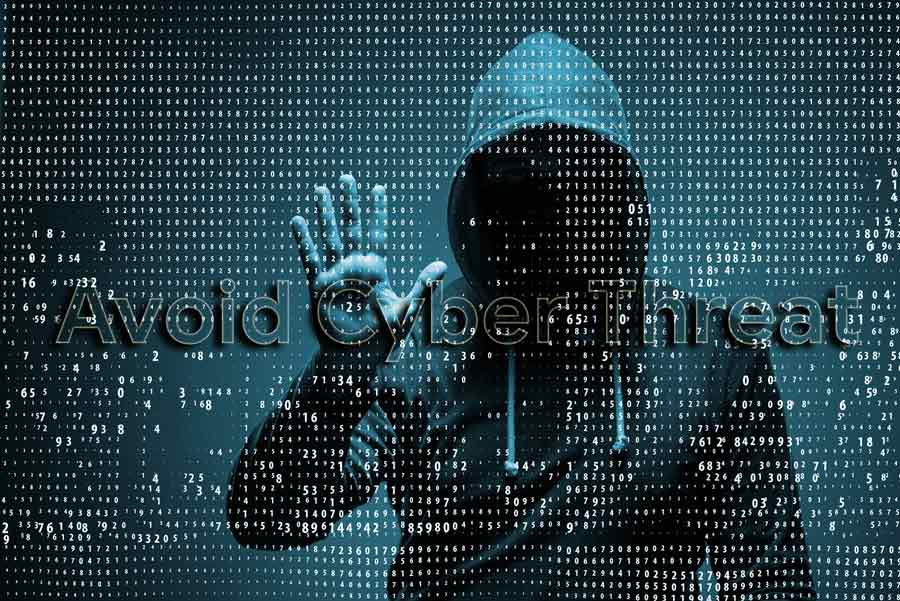When it comes to online security, the first thing every internet user should do is admit that they are not immune to hacker attacks. Regardless of their activity, everyone could become a target. There’s a widespread, yet wrong belief that an ordinary person cannot interest cybercriminals. Even if you are neither famous nor exceptionally wealthy, there’s much at stake. Hackers could steal your work files, family photos, or online banking details. They could also impersonate themselves as you to your friends and ask for money. This could lead to a chain of misery for everyone. And while this may sound like a scenario of a bad movie, such occurrences are actually quite common.
While in real life hacking isn’t exactly as how it’s shown in the movies, it mostly revolves around stealing your sensitive information. And users often willingly give it away – either by typing in their login information on a fake page or sharing their password with someone via email. the reality is much more boring, but it still hurts. So, what are the 5 most important tips for increasing your cybersecurity?
Well, after you have admitted that you are a possible target, and taken cybersecurity into consideration, there are several things that you can do.
Also Read

Page Contents
Avoid Phishing Emails and Calls
If you’re unsure about the email you just received, if it has unusual typos or simply asks for information that they would normally have (why would Amazon ask you for your password), or they direct you to go to a strange link – be aware. Look at the sender and if it looks suspicious, report it as spam. Even that can be faked, and if you’re really in doubt, call the customer service hotline on their website, and ask about the email or the phone call you just received.
Use Secure Passwords
No, a longer password does not mean it’s safe. The word password has 8 letters, and yet it is as unsafe as a password can be. A good password has more than 8 characters, a combination of small and capital letter, numbers, and signs – and it doesn’t use any words. They should look like gibberish.
How do you remember all of this? Use a password manager that can generate strong passwords and store them safely for you. Furthermore, this will prevent you from using the same password, so if one service provider is hacked, and your email and password get breached, they won’t be able to use it on other websites.
Don’t Click on Everything
If it seems to be too good to be true, it probably is. Do not trust any official-looking pages that pop up on your phone while browsing saying that you’ve won awards. Also, do not click anything that suggests your phone might have viruses – if your phone has problems, the operating system will solve that; the system warning won’t pop up while you are browsing.
Also, be careful about the websites you are visiting. Trustworthy websites have ads, but they are clearly marked as ads – no popups that fill your entire screen. If you go to a website that pressures you into allowing notifications, popups – leave, and do not return.
Back Up Your Data
It happens to the best of us. Sometimes we share our passwords online, and someone deletes our emails or our Facebook pictures. Sometimes, we download a virus that completely erases our computer. Because of this, it is a good idea to have everything backed up, especially important documents, and keep them on some offline storage, such as a USB drive (preferably with a password). So, in case you have to completely erase your computer, you will just lose temporary documents. Everything else will be safely backed up in cloud storage (work documents), and your personal data such as scans of certificates, passports etc, will be stored offline.
Smart Use of VPN
Virtual Private Networks allow you to reroute all traffic between you and the destination server through a special server that’s anywhere in the world. This does two things. First, it encrypts all the data, so that anyone listening to your Wi-Fi (especially if you are using open public hotspots), will not be able to intercept your date. Also, this secures your data from your internet provider, and what you do online is perfectly safe.
Second, VPN allows you to connect to any website in the world, and hide where the request is originating from, meaning it will remove regional obstructions, and you will be able to access content from all over the world.
With some common knowledge and active monitoring of all your accounts, with strong passwords – you will be perfectly safe from the dangers that lurk online.
[googleplay url=”com.nordvpn.android”]
